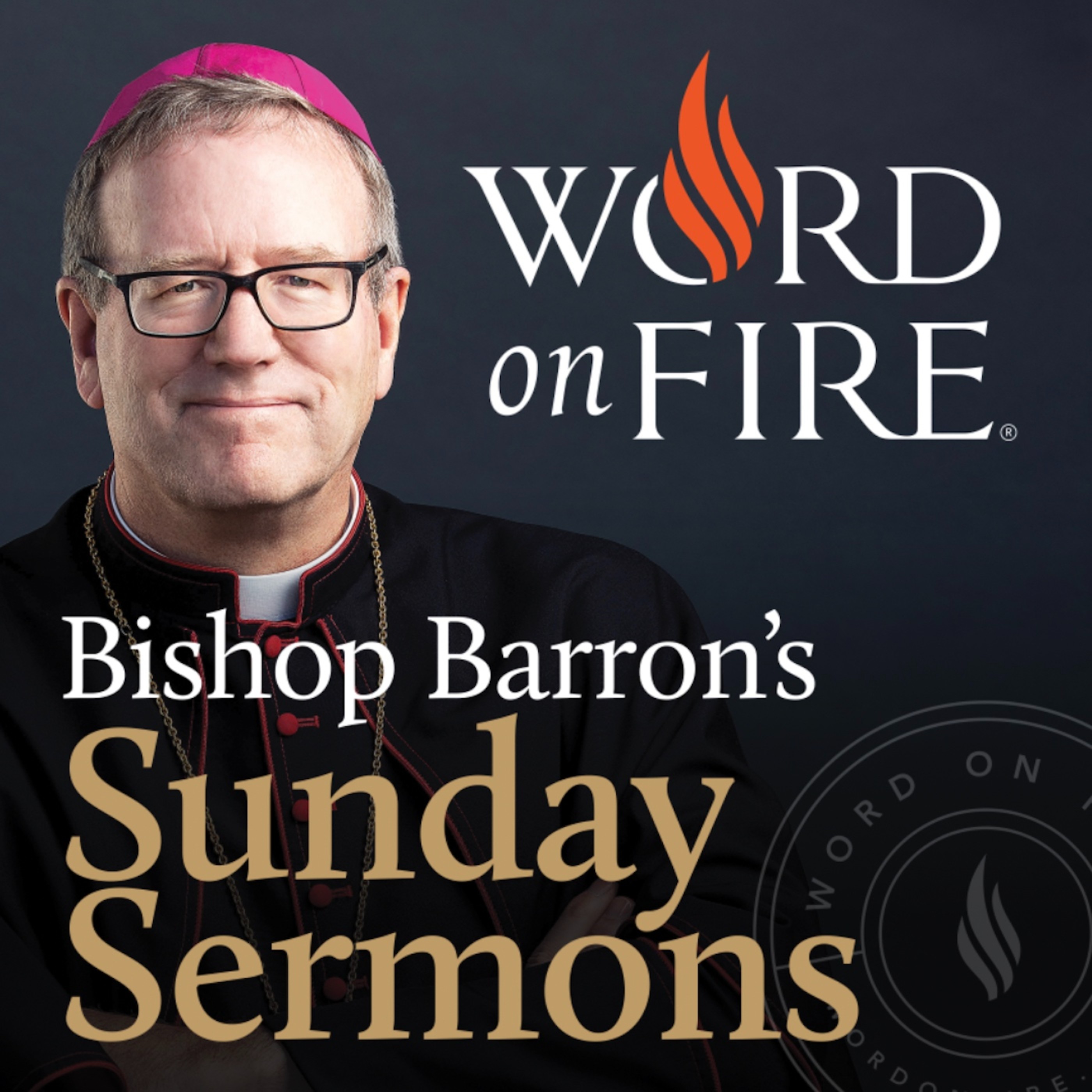

Bishop Barron’s Sunday Sermons - Catholic Preaching and Homilies
Bishop Robert Barron
A weekly homily podcast from Bishop Robert Barron, produced by Word on Fire Catholic Ministries.
Episodes
Mentioned books

Feb 20, 2011 • 15min
Be Perfect
Jesus calls us to love. But few consider the radical nature of this calling. It entails loving the other, even our enemies, regardless of the response of the one who is loved. If you fail, and you often will, turn to God for the grace to live out this strange way of Christ.

Feb 13, 2011 • 15min
Preaching the Radical Word
Like a good healer, Jesus has not come simply to behaviorally modify us; he has come to heal us at the root of our being, eradicating all dysfunction from our most basic core.

Jan 30, 2011 • 15min
Blessed Are We
The Beatitudes reveal the true path of joy is found not in grasping at power but in the willing surrender to God's mysterious grace.

Jan 23, 2011 • 15min
Following the Lord
All of us want to live to the fullest. However, most of us never find the one thing that will inspire us to dedicate our whole lives to it. It is amazing to hear of how the first people who responded to Christ dedicated their whole lives to him. Their encounter with Christ sent them on a path they never dreamed of. Paradoxically, this path was marked by great joy and suffering; but, nevertheless, they lived life to the fullest.

Jan 16, 2011 • 15min
Paul's Opening Words to the Corinthians
In Paul's first letter to the Corinthians, he highlights the beauty of baptism and how it sweeps the baptized person into God's great theo-drama. God calls us out of the world of our narrow egos to partake in his redeeming plan of love of which the Church is the vehicle. Follow Christ, and peace will be given to you.

Dec 19, 2010 • 15min
Ahaz, Isaiah, and Joseph
The problem with our world is that most people do not dream big. In experiencing hardship, we have a tendency to assume the worst, thinking narrowly. The Biblical vision is the opposite of this. Biblical figures see the world through the infinite possibility of God - based in their faith in the Lord. Ahaz refused to be surprised by God's possibility. Isaiah was ready to be surprised. This confidence in God allowed him to dream big.

Dec 12, 2010 • 15min
The Virtue of Hope
Hope is not this-worldly optimism. In fact, from a purely natural perspective, pessimism is the right attitude. Hope is that supernatural virtue which orders our desire toward heaven and the things of heaven. What Isaiah talks about in our first reading is not an expectation that will be realized here below, but only in a transfigured world on high.

Dec 5, 2010 • 15min
The Bracing Figure of John the Baptist
The first step in the spiritual life is simple: you must see your life not as your own project but as a vehicle for God's purposes. However, we are all absorbed in our own lives, forgetting that the road to God is one of self-forgetfulness. This disposition helps us to focus on Christ and his mission. But in order for us to do this we must be cleansed of all attachments and baptized in the fiery love of God.

Nov 28, 2010 • 15min
God's Holy Mountain
Thomas Merton once wrote, "Man is not at peace with his fellow man because he is not at peace with himself. And he is not at peace with himself because he is not at peace with God." Only when we are in communion with God will we be in communion with ourselves and our fellowman. This simple formula summarizes Israel's mission of gathering all peoples in right praise to God on Mt. Zion. Although the world is divided in countless ways, Israel's gathering mission is realistic because Christ, the Messiah, is Lord, and all things will be gathered in himself. For this we wait in joyful hope.

Nov 21, 2010 • 15min
Christ the King
Our first reading for Mass this Sunday is taken from the opening chapter of Paul's letter to the Colossians. There is no stronger statement of the absolute primacy, centrality, and importance of Jesus Christ in the entire New Testament. Jesus, Paul tells us, is the beginning and the end, the icon of the invisible God, the one in whom all things exist and for whom they are destined. And then the Gospel shows us this cosmic King nailed to the cross. This wonderful irony is at the heart of the Christian proclamation: the King of the Universe is a crucified criminal, who utterly spends himself in love.


